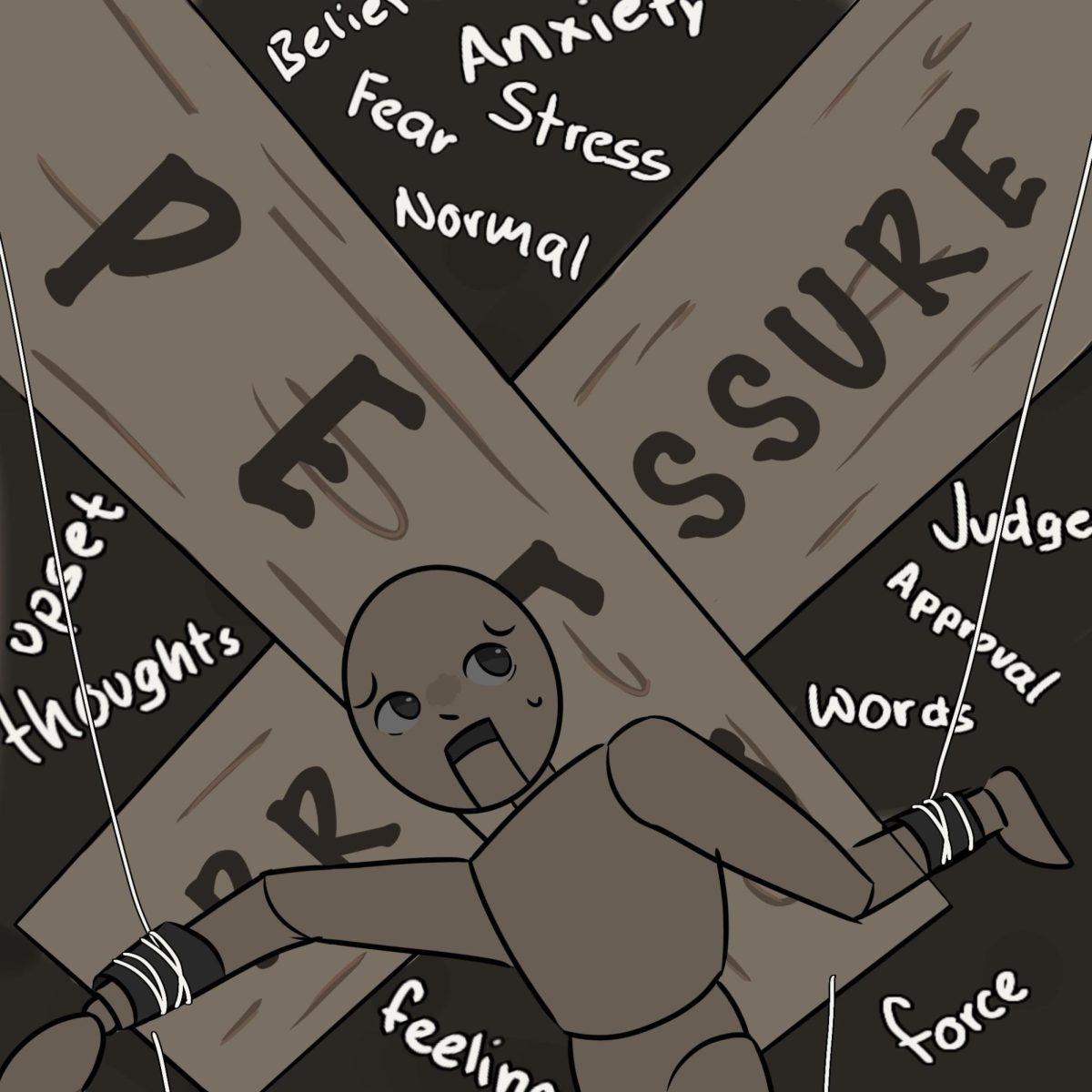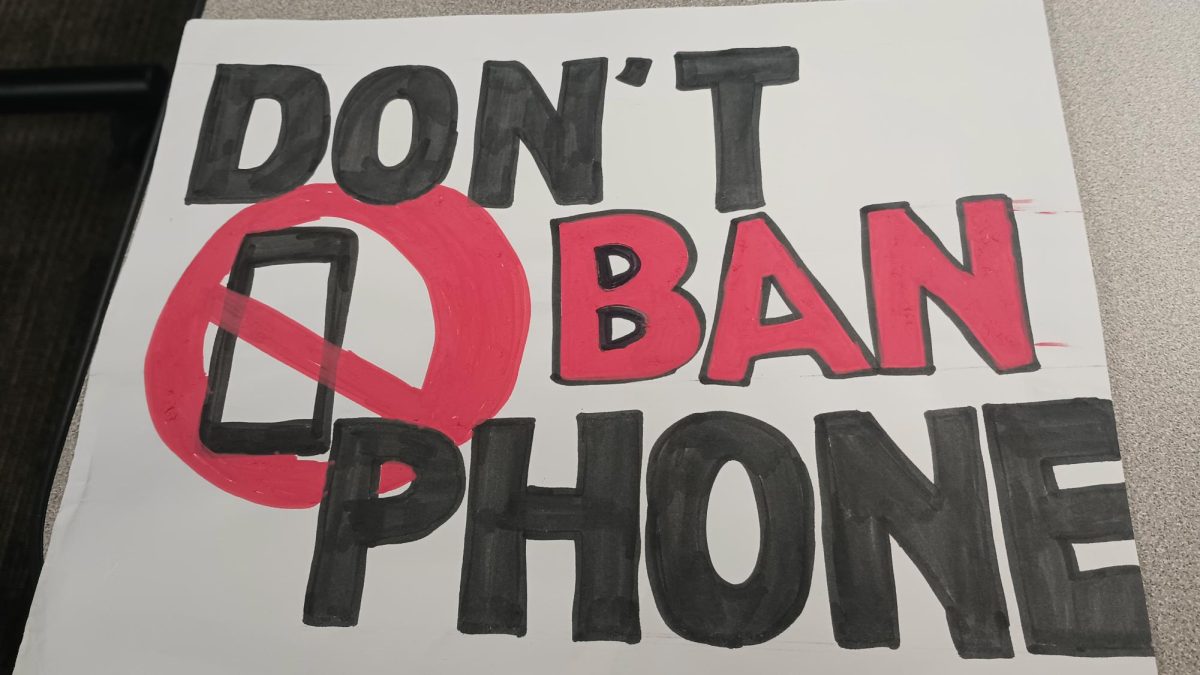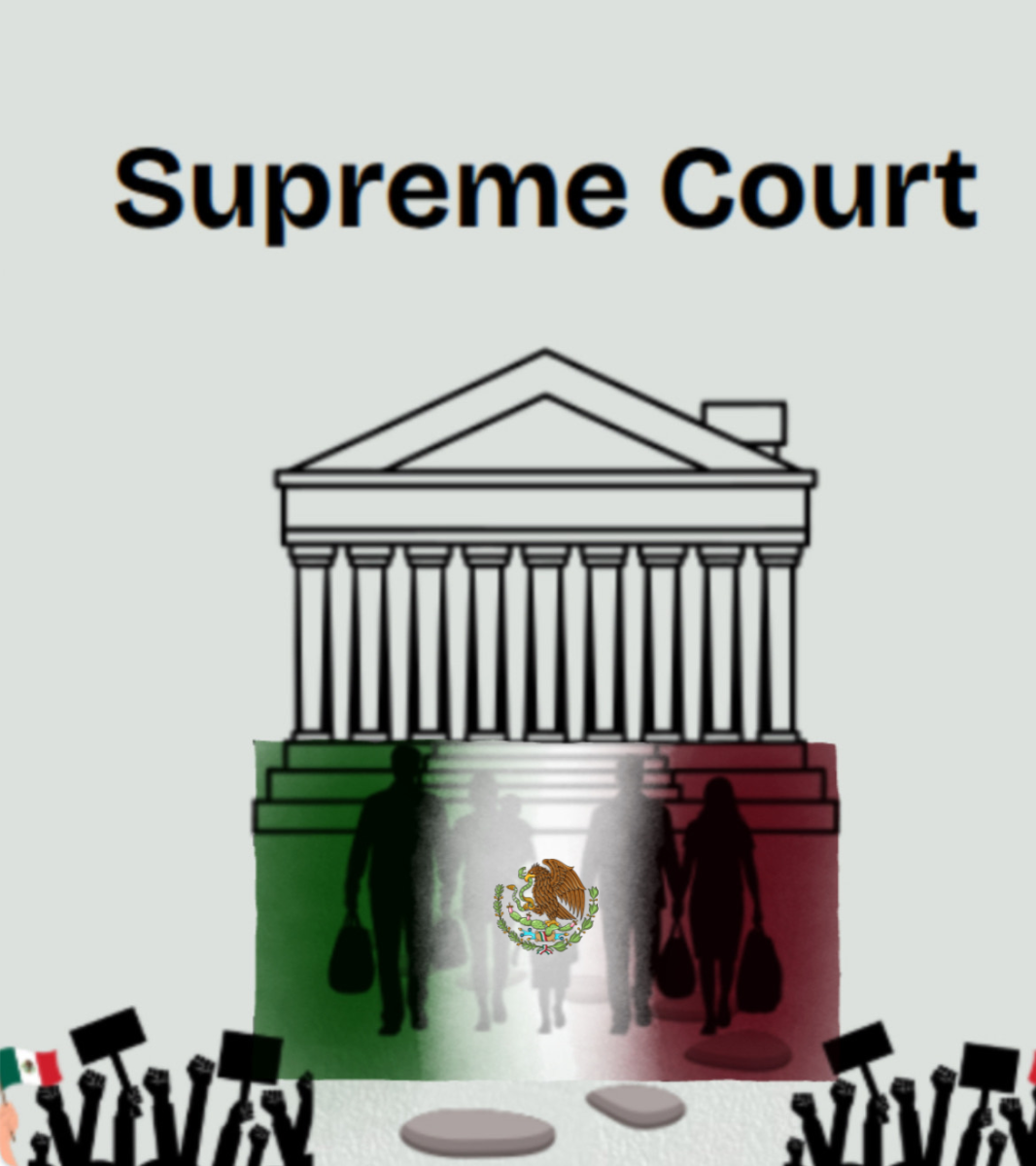As the season of college applications begins, students start to sit down with their parents to discuss the schools they will be applying for and the future career they plan to take on. Yet, for some students their lives aren’t as simple; they have to take into consideration certain things to stay protected. One of those things being the recent Immigration & Customs Enforcement (ICE) raids and deportations which have become increasingly dangerous for people in the U.S. This has caused children to doubt themselves and their next steps.
On Jan. 20, Donald Trump was inaugurated for his second term. During the first few weeks as president he decided to add reinforcement to the border, increasing deportations in the U.S. He signed an executive order to expand the “expedited removal,” causing undocumented people to worry.
Students completing college applications are affected because they are fearful that their parents may be deported if they fill out information that the government will read. Most are doubting their decisions to continue their education, unsure if it’s the right path.
Seniors at Middle College High School have been getting ready to submit their college applications. Senior Jared Fierro shares his opinion on the situation.
“I do think that it would be dangerous considering what is happening and how they are targeting them, so it would be risky,” Fierro said.
Senior Alexandra Maciel adds on by highlighting the aspect of college applications that a student might be fearful of and is aware how many people would not want to put their family through this situation in fear of losing their parents.
“I believe that it might create some uncertainty and fear for the safety of my parents, as you do not want to put any information out there that can potentially cause harm and be used against you,” Maciel said.
She’s an example of one of many students whose parents think they are risking their own safety by sharing their information. Their legal status invokes fear that the government will have access to their information and appear at their home to take them. Despite this, some parents are willing to risk it and add their information so that their kids are able to apply and have a better chance at being successful and getting into their dream college.
“Yes, my parents do support my decisions, as they want what is best for me. They want me to become independent and create a life for myself where I don’t have to rely on anyone,” Maciel said.
This could apply to many seniors if they have the same conflict but want to continue their education and make their parents proud. Hoping to accomplish the goals their parents were not able to complete when they were young, students push forward despite the challenging moments during this time.
Maciel further explains her motivation for wanting to continue her education to make her parents proud and push forward knowing that it’s what they would have wanted for her.
“I am grateful that I will have the opportunity to go on with my education and achieve something that my parents were not able to,” Maciel said.
On July 11 there was a temporary order placed in Los Angeles by the Federal Judge; a restraining order that limited the ability of the U.S. enforcement agents to detain people simply on their ethnicity or occupation, regardless if they have a warrant or reasonable suspicion. On Sept. 8, the Supreme Court sided with Donald Trump to remove the judge’s order and give officers the liberty to detain anyone based on their appearance or language spoken.
This is a common fear for many, as government officials are now able to discriminate undocumented people based on their ethnicity, color of skin and the language they speak. Individuals who seemingly look “the part,” are deemed “suspicious,” making it extremely unsafe for people to go to school or work. Officials reportedly apply this label arbitrarily, targeting people for vague reasons such as having tinted car windows, acting “distant,” trying to hide, being at a certain job location, or simply based on their appearance, which is assumed to indicate a lack of legal status in the U.S.
Maciel shows fear of losing her parents even though they have legal status here.
“Yes, it is a fear of mine, as I have seen that they have been taking citizens and residents,” Maciel said.
Ms. Olivos, Santa Ana College’s counselor, reassures students like Maciel and Fierro that their parents’ information will not be used against them.
“Whatever you state on your applications, will be protected by FERPA [Family Educational Rights and Privacy Act], and it’s always private and confidential. We have to remind them that it’s safe and will not be released, especially not to the government,” Olivos said.
Olivos explains that the state of California provides protection for students and parents’ information to be kept private.
“Even though you have to fill out that information in the application, you are legally protected by the state of California, which offers the Dream Act that is for students who are undocumented,” Olivos said.
The Dream Act provides a pathway to conditional permanent residency and eventual citizenship for certain undocumented immigrants who were brought to the country as children; this is a main resource that is available to undocumented families throughout the U.S.
As the college application season arrives, a stark difference remains between the U.S. Government’s intensified targeting towards undocumented people and the need for students from mixed-status families to confidently apply to higher education. To bridge this gap, advisers are constantly educating students and families on their rights and offering support for college applications.


































